Seven Samurai (a.k.a. Shichinin No Samurai) (Region Free)
The mighty warriors who became the seven national heroes of a small town
Certificate: none
Running Time: 203 mins
Retail Price: $39.95
Release Date:
Content Type: Movie
Synopsis:
A veteran samurai, who has fallen on hard times, answers a villages request for protection from bandits. He gathers 6 other samurai to help him, and they teach the townspeople how to defend themselves, and they supply the samurai with three small meals a day. The film culminates in a giant battle when 40 bandits attack the village.
A village is constantly attacked by well armed bandits. One day after an attack they seek the wisdom of an elder who tells them they cannot afford weapons, but they can find men with weapons, Samurai, who will fight for them, if they find Samurai who are in down on their luck and wondering where their next meal will come from. They find a very experienced Samurai with a good heart who agrees to recruit their party for them. He selects five genuine Samurai and one who is suspect but the seven return to the village to protect it from the forty plus bandits.
Special Features:
Animated Menus
Audio Commentary
Theatrical Trailer
Video Tracks:
Standard 1.33:1
Audio Tracks:
Dolby Digital Mono Japanese
Subtitle Tracks:
Japanese
English
Directed By:
Akira Kurosawa
Written By:
Hideo Oguni
Akira Kurosawa
Shinobu Hashimoto
Starring:
Takashi Shimura
Seiji Miyaguchi
Toshiro Mifune
Yoshio Inaba
Soundtrack By:
Fumio Hayasaka
Editor:
Akira Kurosawa
Costume Designer:
Kohei Ezaki
Production Designer:
Takashi Matsuyama
Producer:
Sojiro Motoki
Distributor:
Criterion
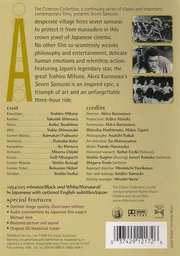
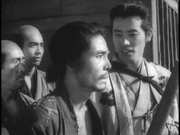
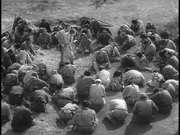
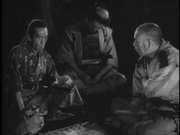
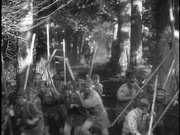
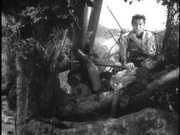
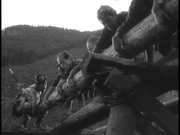
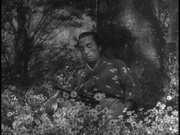
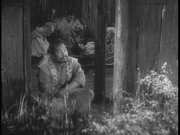
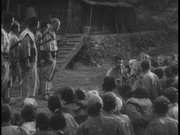
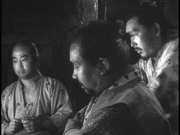
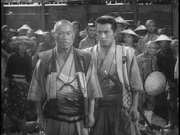
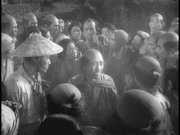
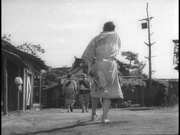
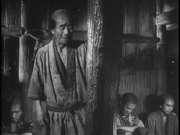
































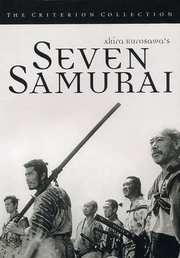
Your Opinions and Comments
Breathtaking, fastmoving, and overflowing with a delightfully self-mocking sense of humour, Akira Kurosawa`s Seven Samurai is one of the most popular and influential Japanese films ever made. Released in 1954, this rip-snorting action-adventure epic about a sixteenth-century farm community led by a band of samurai warriors defending itself against a marauding army, sparked not only an American remake, The Magnificent Seven (1960), but went on to influence a score of other westerns, particularly those of Sam Peckinpah (The Wild Bunch) and Sergio Leone (The Good, the Bad and the Ugly and Once Upon a Time in the West). But to hear it from director Kurosawa, the most important inroad Seven Samurai made was on home turf.
"Japanese films all tend to be rather bland in flavour, like green tea over rice," Kurosawa remarked in an interview, making a knowing dig at his staid rival, Yasujiro Ozu (one of whose films was actually called The Flavor of Green Tea Over Rice). "I think we ought to have richer foods, and richer films. So I thought I would make this kind of film entertaining enough to eat."
The dish Kurosawa set before audiences was certainly different from what they had tasted up until then-particularly as far as period filmmaking was concerned. Instead of the slow, ritualistic, and highly theatrical style of the typical sixteenth-century saga, Seven Samurai moved with the sure swiftness of a Hollywood action epic, like Gunga Din or Stagecoach. The characters may inhabit historical settings, but their manner and bearing were, often as not, strikingly contemporary-particularly in the case of the buffoonish Kikuchiyo, the high-spirited would-be samurai played with great gusto by Toshiro Mifune. Most important of all was the visual style of the film which, thanks to Kurosawa`s use of multiple cameras, lent itself to many unusual editing techniques.
In the atmospheric opening scene, for example, the camera cuts closer and closer to a group of cowering villagers, dramatically underscoring their situation with deft simplicity. An audacious use of slow motion in the sword fight scenes of Chapters four and seven give them a highly sophisticated dramatic charge. And that`s not to mention the climactic battle scenes, whose brilliant staging and heart-stopping pace rival the finest work of Griffith, Gance, and Eisenstein.
But over and above these select bits of brilliance stands Kurosawa`s storytelling style. The film may be over three hours in length, but the pace never flags because the director at the helm has an uncanny sense of assurance in varying the action`s flow. We`re never retracing old dramatic ground, rather, we`re always moving forward.
Kurosawa wastes little time in setting up his premise. It`s essentially there in the film`s opening shot-an ominous vista of horses galloping against the horizon at daybreak. Once the villagers state their plight and decide the course of action they have to take, the film is off and running, as they go looking for the samurai warriors they`ll need to help them. This situation quickly devolves into a series of vivid dramatic turns, as we meet each of the chosen samurai and their leader (the great Takashi Shimura) sets about planning the strategy the villagers will need to fight the army.
It is at this juncture that Kurosawa adds a special flavour to the proceedings that sets them apart from any action film ever made. For the story of Seven Samurai isn`t one of simple Good versus Evil, as we learn when we`re told that these villagers have, in the past, preyed on the very class of samurai they`re now asking for help. And why are these samurai helping them, for virtually no pay, and with only a few handfuls of rice for food? Why, for the adventure of it all, of course. These men have seen many battles, but only in this one will they be truly able to test themselves. There`s no reward, and the odds against their winning are a good one hundred to one-and that`s exactly why they want to stay and fight. For these seasoned warriors long to experience that very personal sense of "honour" so prized by the Japanese.
Watching this raggle-taggle band of fighters defend the village makes for a climax as stirring as ever seen on a motion picture screen. But it`s only one part of an epic movie meal that is every bit as delicious as its filmmaker chef had planned.